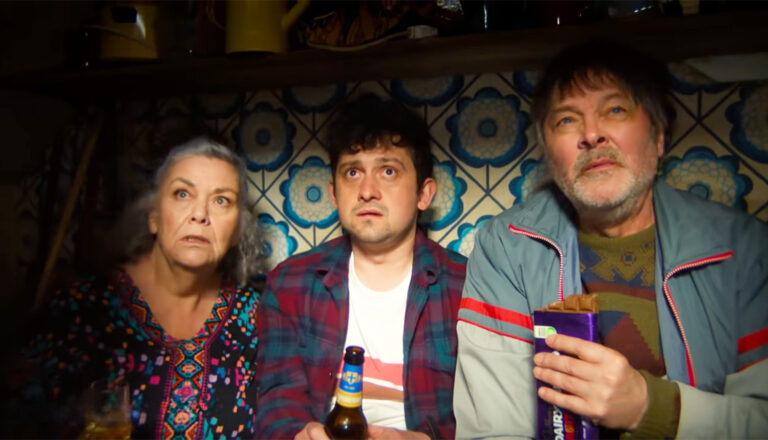
Can You Keep a Secret?
Liars prosper in ‘Can You Keep a Secret?’ on Paramount+ as Debbie Fendon pretends her husband is dead to keep his life-insurance money.
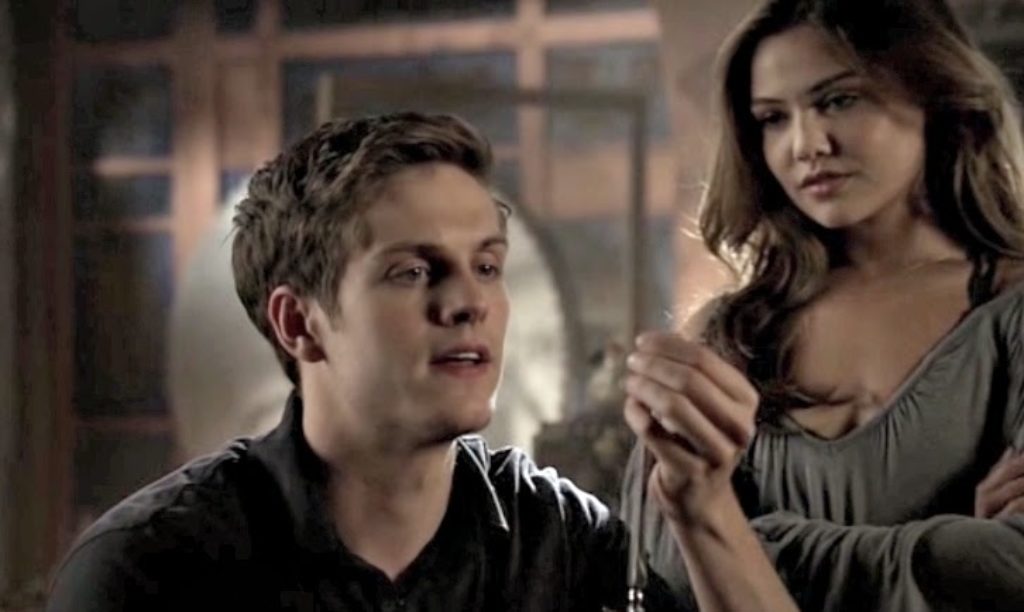
They say that when you get old, you get set in your ways.
Take, for example, the Mikaelsons. Oh, they were vivacious youngsters back in the Middle Ages—Elijah, Rebekah and Klause—all crazy kids just frolicking on the family farm and trying not to contract the plague.
But when their younger brother was eaten by werewolves (a real nuisance, apparently, in the Old World), their father forced the three of them to become vampires, just ’cause. Now, a thousand years or so later, they’re still hanging out together, growing ever-more cantankerous, rehashing ancient grievances and debating just who stabbed whom in the 19th century.
Elijah, the familial leader, has mellowed some over the last millennia. Or maybe he was just always the good vampiric egg in the bunch. Like a grandfather dishing out Werther’s Originals to his grandkids, he believes that love and happiness are the keys to fulfillment. Of course, starting a family’s impossible for the guy, given that he’s technically dead and all. Vampires are remarkably lively, but they can’t have kids. So he has to make do with his brother and sister. Oh, and the niece or nephew that’s on its way.
Yeah, that “niece or nephew” thing is a bit confusing, I know, given that I just said vampires can’t have kids. But Klaus is different: He’s apparently the lovechild of his mother and a werewolf, which makes him sort of an undead hybrid—one still capable of producing offspring, it seems. Alas, the long passage of time has made him really cranky. If he had a lawn, he’d tell the kids to get off of it. And by telling them to get off it I mean he just eats ’em.
Rebekah? Well, she’d rather not be bothered by these family attachments. She’d rather gaze out the window or something and have people appreciate how special she is.
And so we might compare these three characters to blood types: positive, negative and type O—as in egO.
But even vampires have their everyday worries. Shortly after moving to New Orleans (for the second time in their long lives), they discover they have to move away. See, it just so happens that Hope, Klaus’ daughter, is possessed by something called the Hollow at the end of season four. And in order to save Hope, each of the siblings must take a part of her evil possession upon them, and then eternally separate to keep Hope and the city safe.
Or so they said. But now, for this last season, the siblings will do whatever it takes to reunite, despite their vow—and the outcome might not be all too tame.
The CW named this show The Originals, because the Mikaelsons are supposedly the world’s first vampires (spun off from The Vampire Diaries). But there’s a hint of delightful irony with the title as well, given that there’s absolutely nothing original about this show.
That’s not all bad, by the way. The CW caters almost exclusively to teens and twentysomethings, and at least a few positive themes seem to show up in this network’s supernatural series. The Originals, like the aforementioned Vampire Diaries, Supernatural and others, talks a lot about how important family is—even as it shows how difficult family can be (a dynamic familiar to many an adolescent). It suggests that love is powerful, able to breathe new life even into the deadest of vampires.
But that brings us back to … the vampires. There’s some Bram Stoker in these bloodsuckers, born out of black magic and unable to walk on sacred ground unless invited. But there’s a little Edward Cullen, too. And, of course, a whole lot of influence from The Vampire Diaries. The vamps and other characters here are incredibly problematic in several ways: The witches engage in magic that taps into secret, presumably dark powers. Werewolves lope in and out of the picture, and there seems to be some effort to equate the natural, nothing-you-can-do-about-it condition of lycanthropy with homosexuality. (In the pilot, for instance, Elijah feels horrible that he didn’t do anything to stop his father from forcing Klaus to reject his “natural” condition.)
So is this a well-meaning supernatural soap? Or a weekly advertisement for the occult and “too-modern” family values?
Maybe both, burried under tried and tired CW-style salacious silliness. Sex and gore ooze from the show’s icy veins. Sex is a constant focus, even in episodes where the content is fairly tame. Males brood and smolder. Females pout and seduce. And all, of course, kill and eat quite messily, spreading blood-spattered corpses around New Orleans … and your TV.
(Editor’s Note: Plugged In is rarely able to watch every episode of a given series for review. As such, there’s always a chance that you might see a problem that we didn’t. If you notice content that you feel should be included in our review, send us an email at letters@pluggedin.com, or contact us via Facebook or Instagram, and be sure to let us know the episode number, title and season so that we can check it out.)
Seven years have passed since Klaus, Elijah, Rebekah and Kol Mikaelson made a vow to eternally separate for the good of Hope (Klaus’ daughter) and for the safety of New Orleans. But these vampires know that vows can be broken. Klaus is on a murdering rampage to eliminate each of his present enemies in order to protect his brother, Elijah (whose memory has been wiped by the vow). Hope is determined to find her father (who has ignored her for seven years), no matter what the cost. She’ll even help turn a human into a werewolf to get the money for a plane ticket.
Vincent (a very powerful witch) vows to protect New Orleans from the Mikaelsons, knowing that if they reunite, the evil entity inside them all may also unite and destroy the city. Meanwhile, Marcel proposes to Rebekah Mikaelson and waits to see if she will choose him or the family she so desperately wants back. Freya (Vincent’s witch sister) decides to leave New Orleans and pursue her female lover, Keelin.
Hearts are ripped out, necks are snapped and minds are controlled by witches. People are knocked unconscious by magic. A kid commits suicide by jumping out a window. Dead bodies are seen. Blood spews from bodies, pours like rain from the sky and some drink vials of it. Quarrels ensue. Characters mention alcohol and consume wine, hard liquor and beer.
A young woman’s mother teaches her daughter, “my body, my choice.” A woman takes a bath (though we see no nudity). Shirts reveal cleavage. Men go shirtless. Someone is suspended from school. A woman mentions wanting to kiss another woman (they decide to spend their lives together). The word “h—” is heard once.
Elijah arrives in New Orleans after hearing that Klaus is having troubles with some of its citizenry. He learns that Marcel, an old friend of Klaus’ who runs the city, has thrown all the werewolves out and is making life difficult for witches. The witches tell him that Klaus has created a love child with a werewolf, and the unborn baby is important for some reason. So the witches are holding the pregnant mother hostage, threatening to kill her and her child unless something’s done about Marcel. Klaus doesn’t care, but Elijah pledges his help.
Vampires are shown attacking and biting people. Corpses are shown, half-eaten by vampires (or other beasts), blood streaking their faces and clothes and the walls around them. We see lots of gory neck wounds. Some vampires show off their bloodstained mouths. Someone gets stabbed in the chest. Others get impaled on trees. A character bites open his own wrist. Someone cuts open her own hand in order to wound someone else magically.
We hear lots and lots of talk about magic and spells. (One of the witches is magically bound to Klaus’ lover, thanks to one such spell.) Tourists are encouraged to go into a store and “buy a hex.” We’re told that a witch has to be buried in a cemetery so that her soul will be at rest. And we see a witchy funeral service in the cemetery, and are told that the ground is “sacred” and thus impassible by vampires without an express invitation. Klaus says that he made Marcel in “my image.” Costumes can be quite immodest. Rebekah lounges in a bubble bath, her body visible from the shoulders up. Characters drink at a bar. Profanities include “h‑‑‑” (six uses), “d‑‑n,” “b‑‑ch,” “b‑‑tard,” “d‑‑k” and “p—.”

Paul Asay has been part of the Plugged In staff since 2007, watching and reviewing roughly 15 quintillion movies and television shows. He’s written for a number of other publications, too, including Time, The Washington Post and Christianity Today. The author of several books, Paul loves to find spirituality in unexpected places, including popular entertainment, and he loves all things superhero. His vices include James Bond films, Mountain Dew and terrible B-grade movies. He’s married, has two children and a neurotic dog, runs marathons on occasion and hopes to someday own his own tuxedo. Feel free to follow him on Twitter @AsayPaul.

Kristin Smith joined the Plugged In team in 2017. Formerly a Spanish and English teacher, Kristin loves reading literature and eating authentic Mexican tacos. She and her husband, Eddy, love raising their children Judah and Selah. Kristin also has a deep affection for coffee, music, her dog (Cali) and cat (Aslan).

Liars prosper in ‘Can You Keep a Secret?’ on Paramount+ as Debbie Fendon pretends her husband is dead to keep his life-insurance money.
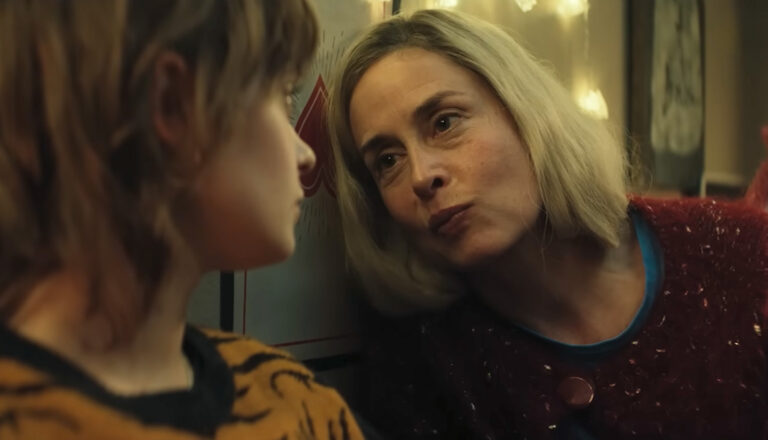
Filled with gritty violence and foul language, when it comes to this German spy drama, “unfamiliar” is how most viewers should stay.
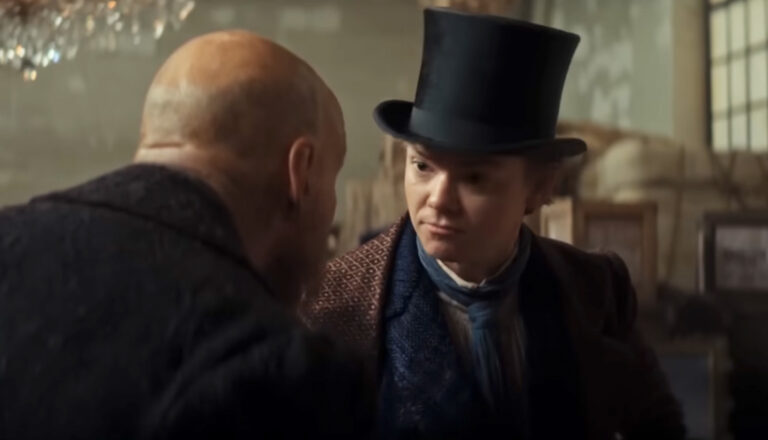
Oliver Twist’s Artful Dodger isn’t 13 anymore: He’s an adult. And being an adult comes with more grown-up problems.
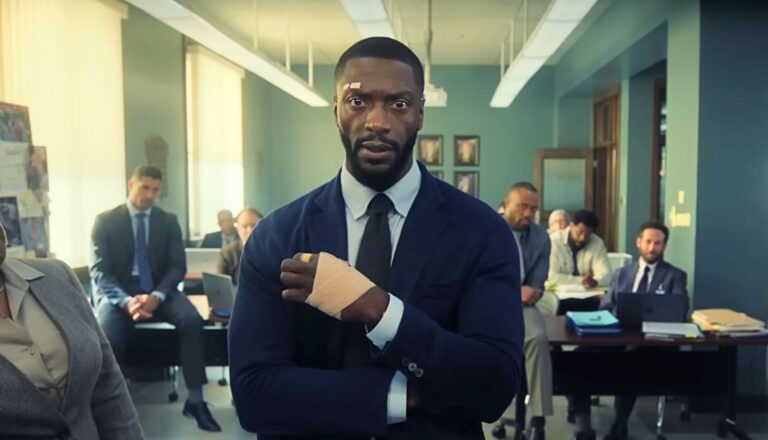
Though it’s compelling, the content concerns in Prime Video’s ‘Cross’ might be enough to cross it off your watch list.